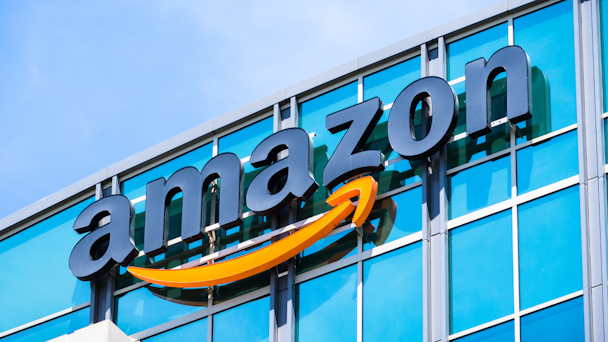Amazon says antitrust bill would make it ‘practically impossible’ to offer Amazon Prime services
Amazon is firing back at US legislators who are on a mission to improve marketplace competition by damping self-promotional behavior by major tech companies.

Amazon says its business is unfairly targeted in a proposed bipartisan antitrust bill / Adobe Stock
Amazon today released a lengthy statement castigating antitrust legislation in Congress that would stop tech giants from giving preference to their own businesses on their websites. A blog post penned by Amazon’s vice-president of public policy Brian Huseman outlines the company’s primary concerns, explaining that the bill unfairly targets Amazon and would negatively impact the customer experience.
The bill in question, introduced in October by Democrat Amy Klobuchar in the Senate, was created with the intention of mitigating conflicts of interest that could arise for tech companies that own a range of different types of businesses. Dubbed the American Innovation and Choice Online Act (AICOA), it specifically takes aim at Amazon, Apple, Meta, Google and Microsoft. It has bipartisan sponsors.
Some have pointed a finger at Amazon specifically, alleging that its ecommerce platform is bad for competition because it promotes its own branded products in a marketplace where third-party sellers are also allowed to offer products. Third-party Amazon sellers are also subject to a number of rules when they choose to sell on the platform — including rules that are designed to preference Amazon’s logistics services over competitors’.
Unfairly singled-out
Amazon argues that its business model does not resemble the other tech giants implicated in the bill, but rather more closely reflects those of Walmart and Costco, neither of whom would be significantly impacted by the legislation. “Applying the same broad, vague and undefined language to all of these different market segments to regulate what are in fact very different companies would cause serious and damaging unintended consequences for American consumers and small businesses the bills purport to protect,” writes Huseman in today’s post.
Beyond feeling that the company has been unfairly lumped in with a group of tech companies whose business models differ significantly from its own, Amazon raised two other key concerns about what might happen to the customer experience were the AICOA to pass.
Amazon Prime ‘degraded’
The company defends its third-party seller requirements that favor Amazon’s logistics services, arguing that its ecosystem makes selling and fulfilling orders seamless and efficient for sellers while also ensuring orders can be fulfilled at speed to the expectations of shoppers.
Huseman argues that all players would be disadvantaged by the potential impact on Amazon Prime services, writing: “[AICOA] would mandate that Amazon allow other logistics providers to fulfill Prime orders. Such a mandate would make it difficult, and potentially impossible in practice, for Amazon and our selling partners to offer products with Prime’s free two-day shipping (let alone one-day)... Were this legislation to become law, it would substantially degrade the value and quality of Prime, as many of the products sold in our store today with Prime’s one- to two-day delivery promise would be undeliverable in that time frame. This degradation of the Prime experience would materially hurt not just Amazon (which is what we believe to be the real, unstated goal of the legislation), but, more importantly, every American consumer and small business that currently relies on the Prime service.”
Small businesses to bear the brunt
At the same time, Amazon claims that the bill would hurt small businesses. The company says that it currently has more than 500,000 US selling partners who are collectively responsible for 1.8m jobs, and that the restrictions built into the proposed bill — while designed to hamper self-preferencing on Amazon’s part — would actually “prohibit commonplace retail practices” and “jeopardize” the entire marketplace. These restrictions include changing the rules around Amazon’s ability to buy customer data from third-party sellers for advertising purposes.
Huseman asserts that such restrictions would significantly disadvantage Amazon (compared to other retailers like Walmart and Target) and would therefore hurt small businesses selling on Amazon: “We consistently hear from our selling partners that what they find most valuable in working with us is the broad distribution and traffic from hundreds of millions of consumers they get by listing their products in our store — the very benefit they stand to lose with this proposed legislation.”
While AICOA was advanced by the Senate earlier this year, it faces a number of hurdles to being passed in the House, the least of which is not a major lobbying push led by tech’s biggest players.
According to GovTrack.us, a platform that, using AI and advanced analytics, weighs the various factors that may impact a bill’s success rate, estimates that the legislation has approximately a 3% chance of being enacted.

